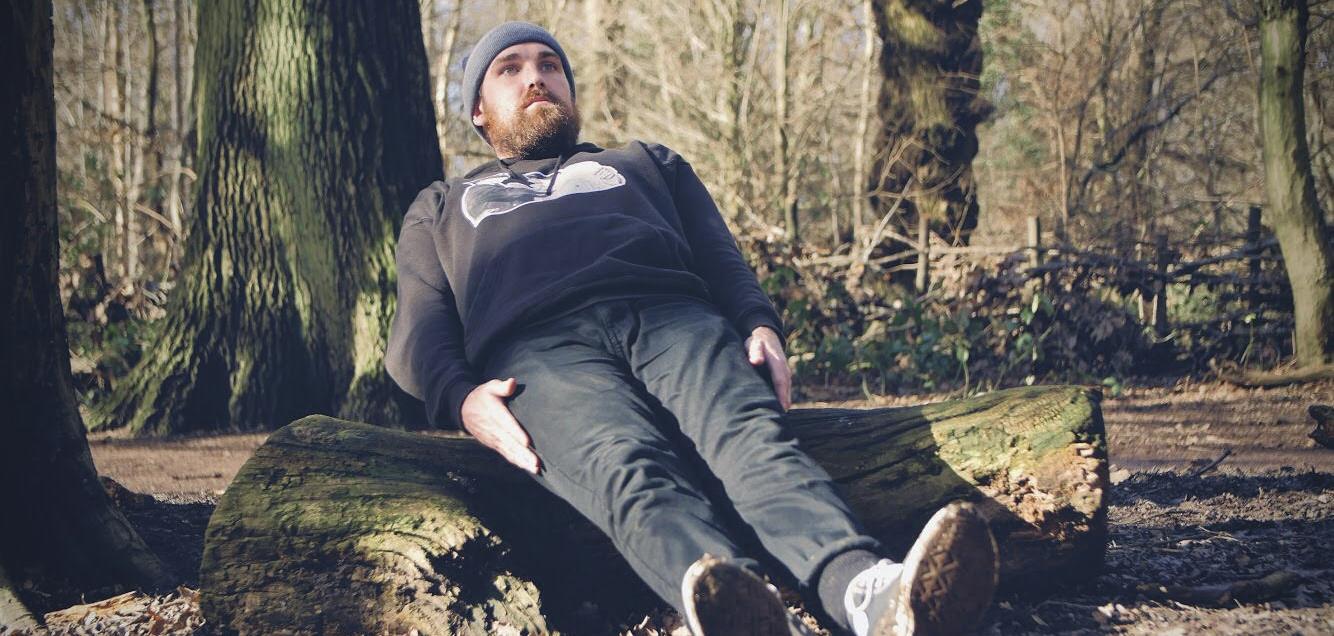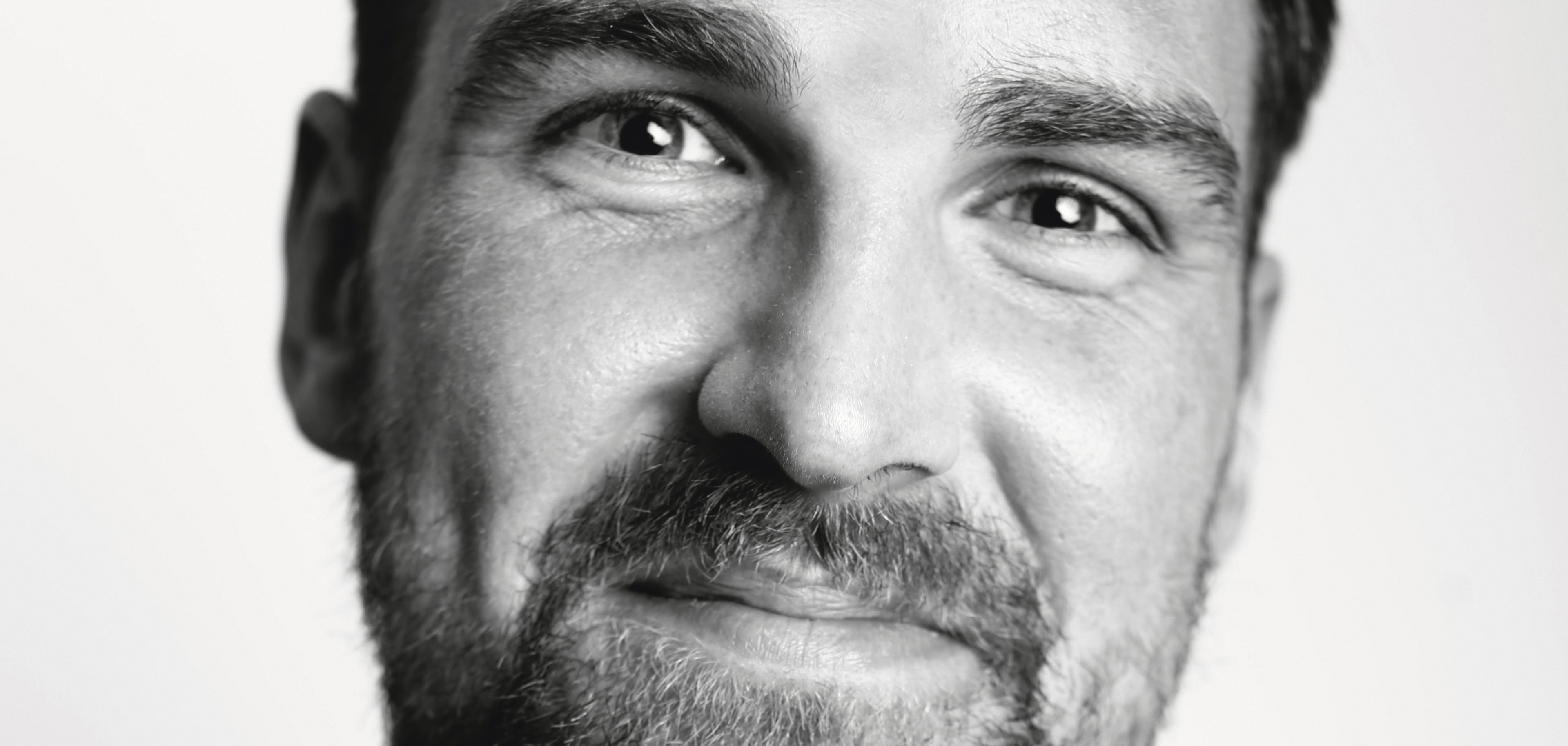‘It’s the alchemical process of turning the darkest most abject aspect of your life into mirth.’
The Quaker comedian Pope Lonergan has built a stellar reputation for his brave and candid approach. Rebecca Hardy caught up with him between gigs and care home shifts

Pope Lonergan has a background in care work with the elderly, and was the mastermind behind the The Care Home Tour. He and a group of stand-ups performed in care homes, often to people with dementia. The Essex-born boy from Rayleigh also runs Pope’s Addiction Clinic where comedians and other people share openly in what he calls ‘full, frank disclosure’. With two upcoming shows at the Edinburgh Festival, Pope delivers comedy that, according to the Evening Standard, ranges ‘from fearless to funny to heart-stoppingly raw’. I caught up with him one sunny Thursday a couple of weeks ago to find out how his Quakerism informs his unique style of comedy. The results were nothing short of inspiring.
When did you become a Quaker?
I’ve always been interested in lots of different religions, but couldn’t seem to settle for one particular one. I’m a recovering addict and went to rehab in The Priory in Chelmsford, where I did yoga. It was the first time I realised that you don’t have to fill the void with talking. You can fill it with contemplation and it has a rejuvenating effect. After I came out [of rehab], I needed some spiritual guidance so I reached out to my local Quakers. When I went to my first Meeting, I felt a great sense of serenity and seemed to establish a connection with people that transcended language. Actually, the Meeting emulated the approach of Alcoholics Anonymous (AA) and Narcotics Anonymous (NA) meetings, but the one difference was sitting in silence, which for me was more beneficial. In AA and AN meetings, I tended to ramble and not really focus on that inner voice, so [at Quaker Meetings], I loved getting in touch with that innate Godliness.
How did you get into comedy?
When I did a dissertation in English and Creative Writing at the University of Portsmouth, I did a project about stand-up comedy and the comedy industry. I got speaking to comedians such as Russell Brand, Simon Munnery and Josie Long, and I realised that I was mainly doing the project to vicariously experience the thrill of stand-up, and that I really wanted to be on stage myself. My mum was a nurse and brought us up to [embrace] ‘full, frank disclosure’. When I got on the stage, I went into that full confessional mode of comedy. It was really cathartic talking about every aspect of my life. I started with ‘open mic’ nights and then moved onto the circuit, which required a lot of resilience and self-promotion.
That’s interesting – how you link comedy with confession. A friend of mine once said that doing comedy for her was liberating, as, for the first time, she felt as if she could simply tell the truth. Is this how you feel?
Yes, that’s exactly it; I would always over-expose myself, so my natural instinct was to tell people everything in my life. Then I realised I could transfer this onto the stage and that people really responded to it. Even [with] the ugly shadow side of yourself, if you are revealing it in an open candid way, people will respond positively and see the universality behind it. I do jokes around taking pills and being around death, but people who aren’t even addicts can see the humanity within those anecdotes.
Do you think there is a spiritual dimension to this truth-telling?
I completely do. It’s like an ablution ritual. You are purging yourself. It’s the alchemical process of turning the darkest most abject aspect of your life into mirth. There is something very freeing about it, and somehow that is creating connection between people. We all have an instinct to self-mythologise, but if you try and be as candid and honest as possible on stage, you’re not putting up a facade and it’s a kind of confessional one-on-one. We all have a need to curate our lives and only offer up the bits that reflect well on ourselves, the bits that are competent, for example, but there is such a broad spectrum of human experience that you are depriving yourself and other people of the struggle we go through, and that’s part of our nature. So by putting it on stage and expressing it, it makes people feel more connection.
You’ve said that your comedy tour for care homes rests on the idea that some residents with dementia may be unable to follow the logic of a conventional joke, but still ‘have a visceral, limbic response to physical comedy; the same response they have to music’. Could you tell us more about that?
I love elderly care. I am an extension of their family and The Care Home Tour came out of that. The ethos is to do comedy that is specifically tailored to people with dementia, so it doesn’t rely on word play or anecdotes, but has to be more physical and slapstick. It pertains to what I like about Quakerism, that it transcends language. Dementia can dismantle people’s ability with language so we workshopped and developed comedy that people with different types of dementia can respect. We are looking for more funding at the moment to do more tours, but, basically, we are an improv troupe where three-quarters of us have dementia so we allow [the people with dementia] to guide the performance and the sense of play.
Tell us about Pope’s Addiction Clinic. This too seems to go back to this idea of ‘full, frank disclosure’ that you seem so drawn to.
It’s like a NA and AA meeting but with comedy and audience members. It’s very intimate. Peter Brook in The Empty Space talks about ‘rough theatre’ and looks at simple natural things that can take place in sometimes informal or even dirty settings that can still bring joy to the audience. I wanted to do a play where we can sit in-the-round and comedians share with the audience. The idea is to try and go off-piste and encourage the audience members to do the same. When it works – and it usually does – it can be a very profound experience. Once, a very polished comedian came and I was a bit reluctant because I thought he would be too polished, but he ended up doing stories about his relationship with his father and started welling up. It took him by surprise, so it can be funny and sometimes tragic as well.
How do you think your Quakerism informs your work? How do spirituality and comedy fit together in your life? Do you think they are natural bedfellows or is there a tension between the two?
I suppose they provide an equilibrium. The biggest tension for me is that we rely so much on language, so personally having both of those things [Quakerism and comedy] really adds a sense of balance. I’m always rabbiting on stage, so the moments in Quaker Meetings are my moments of respite, to not have to talk all the time and just be. Also, they both have the same end result. The best gigs for me are the ones when you feel a sense of connection and intimacy, and the Quaker Meeting provides the same benefit. One has an abundance of language, while the other has an absence of language, but both provide a sense of communion. The only obstacle with stand-up comedy is the ego. As a performer, I say I like to treat it as a dinner party where I’m the only one who’s allowed to speak.
What kind of response have you had from Quakers?
The thing I love about Quakers is that they are very inclusive and progressive. When I first met a Quaker, I was reluctant to talk about being an addict or the type of comedy I did. I always conflated any Christian denomination with puritanism and that this kind of stuff was considered base and immoral. But I found Quakers to be very open and accepting, loving and civic-minded. They are always active in the community and always on the right side of history. I was nervous about mixing the two worlds, but when I’ve spoken to Quakers, they have always been accepting and supportive.
Is there a ‘spiritual vocation’ to your comedy?
Yeah, I think there is. I don’t do it for the money and I have a ‘crusader spirit’, so I feel I want to reach people with my comedy. I love it where people come up to me after and talk about their experience, rather than there being a crowbar separation between me and the audience.
Do you ever have moments of ‘divine guidance’?
I’m more of an etherealist than a materialist, feeling ‘the vapour’ or what James Joyce said about how he has almost seen the divine behind everything. There were moments when I got clear of drugs and drink when I felt fully in touch with my senses; just walking back from gigs, I felt in touch with God, and I mean God in a Quakerly way. But the biggest moments when I feel an overwhelming spiritual connection with the world are when I’m with people with dementia in the care home. They’re my people. Sometimes, someone you have looked after for seven years can’t remember your name anymore, but those moments, when you tell them your name and they suddenly remember you, they feel very special. I tell people, this is still your mum or dad; it’s just that layers of accumulated self have been corroded, but they are still there, it’s still the core of them, the essence. It’s a traumatic experience and you are allowed to feel the pain, that long drawn-out mourning, but, for their sake and your sake, I’m trying to keep that direct transmission alive to that person you know. It is faint, yes, but it is still there and you can try to keep a direct link to it. I really just love that.

You need to login to read subscriber-only content and/or comment on articles.
